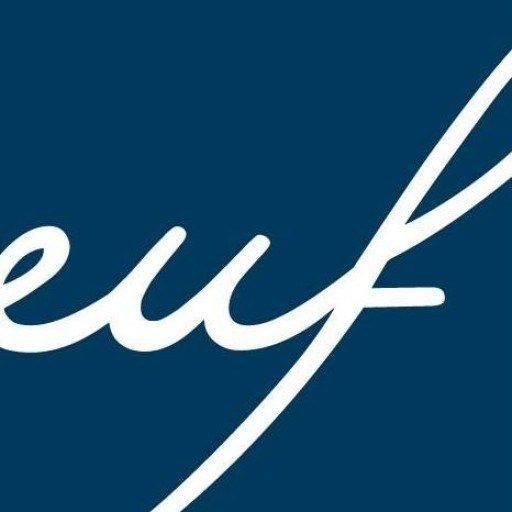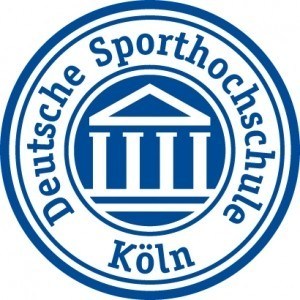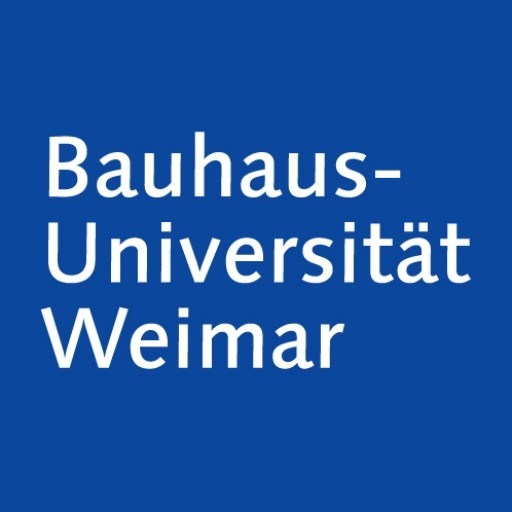Photos of university / #uni.flensburg
Master KSM:
This MA programme combines interdisciplinary and specialised studies with strong, research-based emphases on the modern humanities and cultural sciences and is focused primarily on Continental European, Scandinavian, British and North American studies at the intersections of the Baltic, North Sea and Atlantic zones.
Core and optional courses are offered in the fields of Cultural and Literary Studies, and Linguistics (English, German, Danish), with complementary study components in the fields of Media Studies, Art & Visual Culture, and additional qualifications in Business Studies, tailored towards KSM students.
The KSM teaching corps at Flensburg is multi-national and is regularly supplemented by guest lecturers from partner universities in Europe and America. The research profile of the KSM advanced studies programme comprises the disciplines of English, Danish, German, Media Studies, and the Arts, with contributing professors and lecturers from further institutes located at Europa-Universität Flensburg in Northern Germany.
The KSM final dissertation for the MA degree can be partly researched at a partner university in the USA or the EU. Work practicals and internships in the cultural, media or business sectors or in a position combining cross-cultural tasks are obligatory. The four-semester "MA Kultur-Sprache-Medien" was introduced in the winter semester 2008.
Europa-Universität Flensburg has an attractive, custom-built, green campus, 15 minutes from the city centre, with excellent student accommodation, facilities, and services: http://www.uni-flensburg.de
This MA programme combines interdisciplinary and specialised studies with strong, research-based emphases on the modern humanities and cultural sciences and is focused primarily on Continental European, Scandinavian, British and North American studies at the intersections of the Baltic, North Sea and Atlantic zones.
Core and optional courses are offered in the fields of Cultural and Literary Studies, and Linguistics (English, German, Danish), with complementary study components in the fields of Media Studies, Art & Visual Culture, and additional qualifications in Business Studies, tailored towards KSM students.
The KSM teaching corps at Flensburg is multi-national and is regularly supplemented by guest lecturers from partner universities in Europe and America. The research profile of the KSM advanced studies programme comprises the disciplines of English, Danish, German, Media Studies, and the Arts, with contributing professors and lecturers from further institutes located at Europa-Universität Flensburg in Northern Germany.
The KSM final dissertation for the MA degree can be partly researched at a partner university in the USA or the EU. Work practicals and internships in the cultural, media or business sectors or in a position combining cross-cultural tasks are obligatory. The four-semester "MA Kultur-Sprache-Medien" was introduced in the winter semester 2008.
Europa-Universität Flensburg has an attractive, custom-built, green campus, 15 minutes from the city centre, with excellent student accommodation, facilities, and services: http://www.uni-flensburg.de
Educational organisation
The KSM MA follows a modular structure, with introductions to the six main research fields taking place in the first semester - Arts and the Visual Media, Cultural Studies, Linguistics, Literature, Media, as well as an introduction to Business Studies.In the two following semesters (semesters two and three), students may either specialise in one of the six core research fields, doubling their classes in those fields and dropping other fields - or they may keep to a generalist course of studies and attend classes in the core KSM fields throughout their studies.
The Master's thesis is normally written in semester four over a period of six months.
Study abroad unit(s)
Students are required to complete an international internship or practical placement over the course of studies. A study abroad can take place in semester three.Internships
The programme includes either two practical placements of at least five weeks each or one practical placement of at least 12 weeks. At least one placement must take place abroad and it is common to undertake internships abroad for approx. three months.Forms of assessment
First semester:Take-home essay covering the Introduction to Cultural Studies plus one other subject area.
Second semester:
Either one longer paper combining two of the classes attended (students' choice as to which classes are combined here), or two separate (and consequently shorter) papers in two classes of the students' choosing. This paper or these papers provide the grade for the module.
Third semester:
An oral exam combining two of the KSM classes attended provides the grade for the module.
Fourth semester:
Master's thesis with a presentation
Two practical placements for a minimum of five weeks each or one practical placement for a minimum of 12 weeks (one placement must be international).
Course objectives
Graduates today work in Germany, Switzerland, Scandinavia, Britain and Ireland, the USA and East Central Europe. Postings have been in challenging international job portfolios,such as in bureaux of the European Union and other international organisations, in governmental and non-governmental agencies, in European and American universities as lecturers, instructors and coordinators, as well as in companies, charities and institutions within the cultural, education and service sectors, with a good employment success rate.
Language requirements
Sufficient knowledge of both the English and the German language is required.Sufficient knowledge of the English language can be proven either by a Bachelor's degree in a subject taught in the English language, proof that an English-speaking school was attended by the candidate, or by submitting an English language certificate or test (TOEFL, IELTS, or similar) (EU level 3).
Certification of Language Proficiency
Verification of proficiency in German is a prerequisite for admission to the course of study. This is usually provided by a pass grade in one of the following tests:
- DSH (Deutsche Sprachprüfung für den Hochschulzugang ausländischer Bewerber)
- Minor or major German Language Certificate of the Goethe Institute (kleines/großes Sprachdiplom)
- Advanced-level Central Advanced Language Test (Zentrale Oberstufenprüfung)
- German Language Certificate, Level II, of the German Standing Conference of Ministers of Education and Culture (Deutsches Sprachdiplom, Stufe II, der Kultusministerkonferenz)
- Entrance examination (Feststellungsprüfung)
- TestDaF (Test Deutsch als Fremdsprache für ausländische Studienbewerber) level 4 in all test parts. The TestDaF can be taken in various cities all over the world (see: http://www.testdaf.de)
Required DSH / TestDaF
YesAcademic requirements
A Bachelor's degree or equivalent (Diploma, Master). The Bachelor's thesis must be KSM-relevant (see below) in one of the following subject areas:- Art/Textiles
- Cultural Studies (general)
- Danish Studies
- English or American Studies
- German Studies
- Media Studies
Enrolment fees
Approx. 100 EUR per semester, plus a one-time approx. 50 EUR matriculation feeThe fee includes a semester ticket covering public transport in the Flensburg area.
Students need to have at least 670 EUR in their bank account to receive a visa from the German state (if a visa is required).
Costs of living
The cost of living is generally slightly lower than in major German cities. We recommend that students budget for a minimum of 550-700 EUR monthly, including rent. Breakfast, lunch and snacks are available in the main campus refectory (Mensa), open daily on weekdays from 8:30 am to 4:00 pm. The menu includes daily vegetarian dishes.Approximate monthly costs are:
Rent - room in student halls of residence or private accommodation approx. 250 EUR
Food - approx. 200-300 EUR
Health Insurance (if required) - approx. 80 EUR
Additional costs may occur for travel within Germany, books and materials, rent deposits (will be refunded upon leaving), etc.
Job opportunities
Students may work as language tutors, student assistants, at the university library or in similar positions.Funding opportunities within the university
The International Center has limited funding for practical placements and studies abroad.The Student Advisory Office has contact with foundations and funding institutions.
Arrival support
There is an optional orientation course for new (exchange) students.During the orientation period, international students will also be given information on accreditation and other academic matters as well as on dealing with administrative matters (health insurance, resident permit, matriculation, etc.). There will be an introduction to the new university campus, and to the city of Flensburg and its surroundings, organised by the International Center.
Services and support for international students
The university's international "Study Buddy" programme aims to encourage contact between international students and students in Flensburg. Every international student will be given the opportunity to interact with a (German) "buddy". The buddy, the International Center and the university staff support international students in all issues concerning their stay in Germany and Flensburg.Before the teaching semester begins, the International Center also places "Campus Angels" in the EB Building who are happy to assist all incoming students at the front desk.
Accommodation
Accommodation is available through the Student Services Office or on the private market.Halls of residence: there are three halls of residence in Flensburg run by the "Studentenwerk Schleswig-Holstein". Average rent for a furnished single room in a student residence ranges from 190-250 EUR per month (including water, heating, and internet). All halls of residence are self-catering with shared kitchen and cooking facilities. To apply directly, please refer to: http://www.studentenwerk.sh
Private Accommodation: the University Students' Union (AStA) keeps a list of accommodation available for rent and offers help in finding private accommodation within Flensburg. Please refer to: http://www.uni-flensburg.de/asta/
The International Center of Europa-Universität Flensburg also has useful information and can be found at: http://www.uni-flensburg.de/en/international/international-center/






